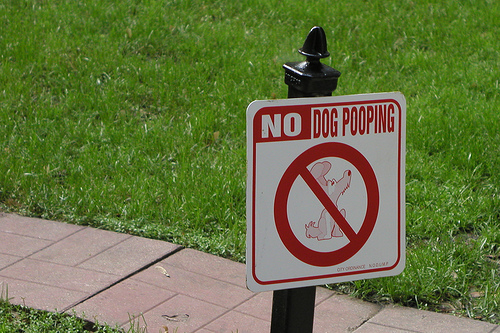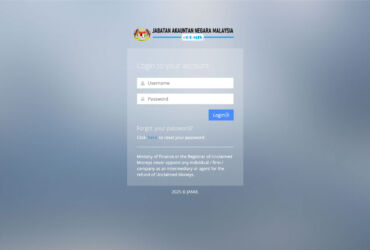
Imagine this scenario. You live in a house. Your house has your lawn. Technically you own this lawn since it’s part of your house, your property. You leave for a 2-week holiday. There’s a hole in your fence. Stray dogs enter your lawn and have a party. They shit, they pee. They make shit castles.
[ad#Google Adsense 336×280]
Your neighbour files a complaint to the local municipal council. Municipal council slaps you with a huge fine when you get home.
You tell your neighbour and the authorities, “This ain’t my shit, you can’t fine me.”
Your neighbour says, “No shit! It’s on your lawn and therefore it’s your shit.”
The municipal council says, “Prove that it’s not your shit.”
You respond, “This ain’t my shit. I had a hole in my fence and stray dogs came in and made that mess. They’re not my dogs. It’s not my fault.”
Municipal says, “It’s your fault because you allowed stray dogs to enter through your broken fence and therefore whatever shit that is on your lawn is your shit.”
Now, let’s put it into an internet context. Let’s say you have a Facebook account (ok, who doesn’t?) and your Facebook Wall is open to friends, and some public (depending on your privacy settings). Imagine one day, someone decides to post a derogatory remark about a public figure, or a politician for instance on your Wall, then, you can be held accountable for publishing that content online.
What?
But it’s not my shit.

According to Section 114A, that shit’s yours too. Until you can prove that it’s not traced back to your username/account, electronic device or even Wifi network, the act presumes you guilty.
And what if you’re hacked, hijacked and someone posts content in your name without your consent/knowledge? According Section 114A, you are still considered guilty until you can prove yourself innocent.
WTF. Yougottabefrigginkiddingme.
Ahem, yes, unfortunately, that shit stinks.
Section 114A. Judge dread.
So here we are – Section 114A. The second of two amendments made to Malaysia’s awesome Evidence Act 1950 (way before the internet if you noticed). This amendment was tabled in the Dewan Rakyat on April 18, 2012 and subsequently on May 9, 2012, the amendment was passed. Having been gazetted on July 31, 2012, the law is officially now operational.
A noble act that benefits a few (we just don’t know who)
Section 114A was proposed to deal with allegedly illicit or harmful content on the Internet. Think of it as a Minority Report-esque pre-emptive strike on a possible crime, only that it doesn’t have the fancy schmancy technology to show you “whodunnit”. It just shows that YOU indeed “dunnit”. It merely gives law enforcement people full power to hold someone accountable for publishing seditious, defamatory content online, until proven innocent.
Why and how Section 114A affects you
Even the title of Section 114A seems dubious – “Presumption of Fact in Publication”. Presumption? Anyways, it states that content publishers are accountable. Think owners and administrators of forums, blogs, and any other content-based sites.
It not only affects end-users and content creators, but businesses and enterprises. Webhosting and internet service providers, outlets that provide free Wifi or internet access. Anyone who owns a computer, mobile device or smartphone that can be used to publish content online. All affected by Section 114A.
What’s wrong with the picture?
Section 114A is problematic and ultimately flawed for some fundamental reasons:
- The burden on the casual, average Internet users who are wrongfully accused of publishing defamatory content.
- Online providers – forums, blogging platforms and web hosting services are now liable for the content their users publish through their services. Traditionally, providers are deemed only providing the platform and cannot be held responsible for the content published.
- Hackers, identity thieves and cyber-criminals escape scot-free while owners of hacked computers are liable for the content that have been posted without their knowledge or consent.
- The law was passed without taking into account public interest and participation.
- The law threatens freedom of expression, freedom of speech and inadvertently stifles interactivity especially of political and social nature.
While packaged as a cybercrime control mechanism, Section 114A loose and often heavy-handed implementation can only be described as an Online Censorship act, with direct and serious implications on the rights of Netizens on the whole.
What you can do
Join the #Stop114A campaign organised by Centre for Independent Journalism, Malaysia (CIJ). Participate in Internet Blackout Day on Tuesday, August 14, 2012.
- If you have a website or blog
- If you are on Facebook
- If you are on Twitter
Vernonchan.com‘s website, Facebook page and my personal Twitter and Facebook accounts are supporting the cause. At the stroke of 12am Tuesday, August 14, 2012, we”ll be keeping hush on social networks and our site.
Get involved, Malaysians. The future of Malaysian internet is in your hands. Keep the internet censorship-free.









